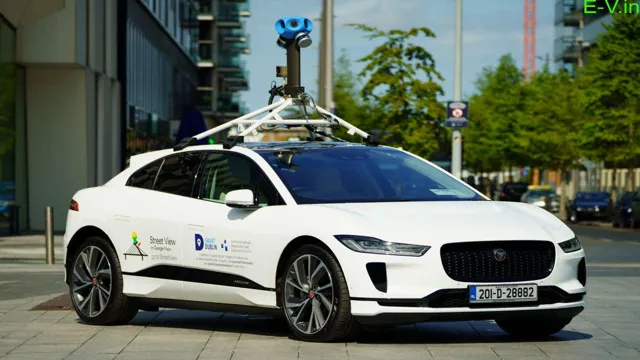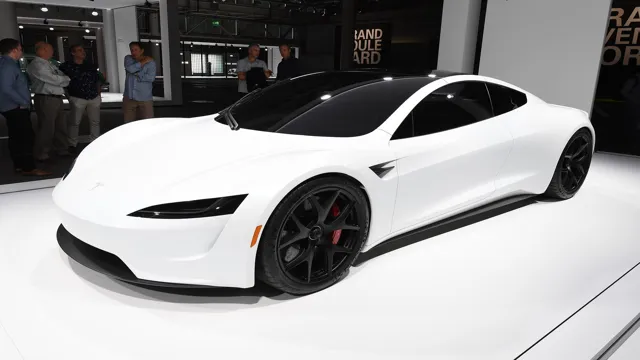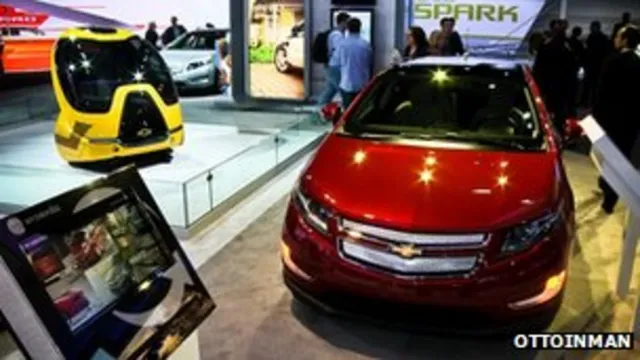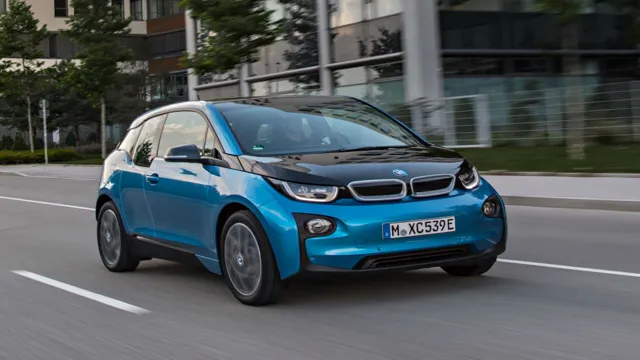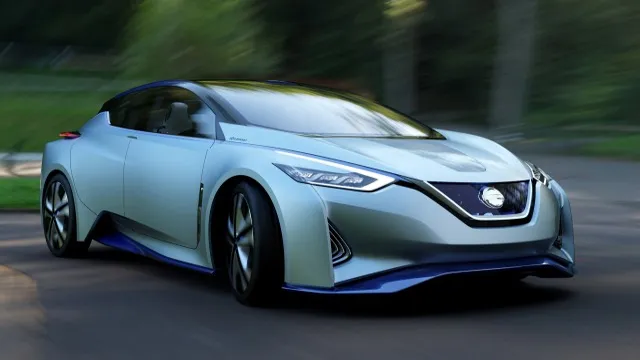Revving Up for Change: Latest Electric Car News and Innovations Unveiled on May 11th!
Good news for electric vehicle enthusiasts! It’s May 11th and we’ve got some exciting updates to share on the latest advancements in the world of electric cars. As the demand for sustainable transportation continues to surge, there is no shortage of innovative technologies and breakthroughs hitting the market – and today’s news is no exception. So buckle up, because we’ve got some exciting updates to cover.
From new partnerships to expanded charging infrastructure and beyond, let’s dive into the latest electric cars news from May 11th.
Tesla Model S Plaid Deliveries to Start this Month
Are you eagerly awaiting the latest release of Tesla’s Model S Plaid? Well, you’re in luck – deliveries are set to begin this month! The Plaid promises to be a game-changer for high-performance electric vehicles, boasting a top speed of 200mph and a jaw-dropping 0-60mph time of under 2 seconds. That’s faster than many supercars currently on the market! The Plaid’s 1,020 horsepower is thanks to its three electric motors – two in the rear and one in the front – and a larger battery pack. But it’s not just speed that makes the Plaid special.
It also features a range of 390 miles on a single charge, ensuring you won’t need to stop and recharge too often on long road trips. With its sleek design, cutting-edge technology, and unparalleled performance, the Tesla Model S Plaid could soon become the electric car of choice for speed enthusiasts everywhere. So keep an eye out for those deliveries – the future just got a whole lot faster! Don’t forget to stay up to date with electric car news every day, and check out other exciting electric vehicles on the market in the month of May.
Details of the Model S Plaid and its impressive specs
Exciting news for car enthusiasts and Tesla fans as the long-awaited Model S Plaid is set to begin deliveries this month. The impressive specs of this high-performance electric vehicle are turning heads in the industry. With a staggering 1,020 horsepower, the Model S Plaid can go from 0 to 60 mph in just under 2 seconds, making it the fastest production car on the market.
It also boasts a range of 390 miles on a single charge, thanks to its upgraded battery pack. The Model S Plaid also features a tri-motor system, providing exceptional torque at all speeds, and a top speed of 200 mph. But that’s not all– the Model S Plaid also has a futuristic interior, with a 17-inch infotainment screen and a second screen for the driver’s display.
The cabin is spacious, with enough room for up to five passengers, and panoramic glass roof providing a stunning view. All in all, the Model S Plaid is a top-of-the-line electric vehicle that takes performance to the next level. It’s no wonder why there’s so much buzz surrounding its upcoming release.
Are you excited to see these impressive specs on the road?
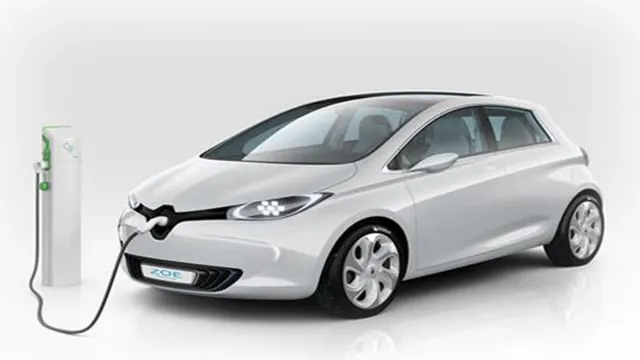
Potential impact on the electric car market
The highly anticipated Tesla Model S Plaid deliveries are expected to start this month, with many eagerly anticipating the impact this vehicle will have on the electric car market. The unique design features a tri-motor configuration, allowing for top speeds of up to 200 mph and a 0-60 acceleration time of under 2 seconds – a feat previously unseen in electric vehicles. This makes the Model S Plaid a potential game-changer in the industry, pushing the boundaries of what was previously thought possible in terms of electric car performance.
As one of the first EVs to reach these kinds of speeds, Tesla is positioning themselves as a pioneering force in the development of electric sports cars. With the Model S Plaid, Tesla is once again setting the bar for the industry and motivating other car manufacturers to keep up with what they’re doing.
Jaguar to go Fully Electric by 2025
Big news in the automotive industry as Jaguar announces its intention to fully electrify its brand by 202 This announcement comes as part of their Reimagine strategy, which aims to achieve net-zero carbon emissions by 203 The car manufacturer will phase out all models with internal combustion engines by 2025, and from there will only produce electric vehicles.
The transition will begin with the launch of their first electric vehicle, the Jaguar XJ, which will debut later this year. This move towards electric cars is in response to increasing pressure from regulators and customers for more sustainable transportation options. Electric cars are becoming more and more popular, and with the cost of electric vehicle batteries decreasing, they are becoming much more affordable.
It is a significant step for Jaguar, and a promising sign for the industry as a whole. This news is likely to raise more awareness about the importance of sustainable transportation and will encourage other car manufacturers to follow in their footsteps.
Company announcement of the all-electric phase-out
Jaguar, Fully Electric, Phase-out Exciting news from Jaguar! They’ve announced that by 2025, they’ll be fully electric! As a company committed to cutting-edge technology and sustainable practices, it’s no surprise that they’re making this move. By shifting to all-electric vehicles, Jaguar plans to become a carbon-neutral company by 203 This is an ambitious goal, but with their expertise in electric technology and their innovative approach to design, I’m confident they’ll achieve it.
Jaguar is switching to all-electric in response to customer demand for eco-conscious vehicles, as well as to meet new regulations in various countries. Electric vehicles are becoming increasingly popular, due to their lower emissions and better fuel economy. With the advances in electric technology, there’s no reason for anyone to miss out on the speed, power, and luxury that Jaguar has to offer.
This shift to all-electric won’t happen overnight, of course. But Jaguar is already well on their way, with several electric models currently in production. As they continue to refine their technology and design, we can look forward to even more exciting developments from Jaguar in the years to come.
For anyone who cares about sustainability and cutting-edge technology, this is an announcement worth celebrating!
Future plans for new EV models and technology
Jaguar Land Rover, the luxury car brand, has recently announced its plan to go fully electric by 202 This means that all of their new vehicle models will run solely on electricity. As a part of their “Reimagine” strategy, Jaguar wants to become a zero-emission company by the middle of the decade.
The company plans to achieve this by investing £5 billion ($5 billion) annually in electrification technology and launching six fully electric models in the next five years.
The first model to be released next year is the all-electric version of the popular Jaguar XJ luxury sedan. Jaguar will also work on developing new technology that could potentially increase the range and performance of electric vehicles. The company sees electric vehicles as the future of transportation, and they are determined to play a significant role in shaping that future.
The decision to go fully electric is a bold move for Jaguar, but it’s one that shows their commitment to sustainable mobility.
What it means for current Jaguar owners and dealerships
Jaguar has announced its plans to go fully electric by the year 2025, marking a significant shift for both current Jaguar owners and dealerships. This move towards electric vehicles is in line with the company’s commitment to reducing its carbon footprint and contributing towards a more sustainable future. For existing Jaguar owners, this announcement means that their future vehicle purchases will be electric-powered.
This presents an exciting opportunity for them to experience the benefits of EV ownership, including reduced operating costs and a greener mode of transportation. For Jaguar dealerships, this transition will require a shift in their business models to cater to the growing demand for EVs. They will need to invest in electric vehicle charging infrastructure and acquire the necessary knowledge and skills to service and maintain the new breed of electric Jaguars.
Ultimately, this announcement by Jaguar is a step in the right direction towards a more sustainable future, and it presents a unique opportunity for both current owners and dealerships to be a part of this wave of change.
EV Sales on the Rise in Europe
In recent years, electric vehicle (EV) sales have been on the rise in Europe, marking a shift towards more sustainable transportation options. As of May 11th, electric cars news reports show that EV sales have increased by nearly 150% compared to the same period last year. This trend can largely be attributed to a growing awareness of climate change and the pressing need to reduce carbon emissions.
In addition, automakers are also responding to the demand for more electric car options with new models that boast improved battery range and faster charging times. This news is exciting for anyone looking to make the switch to a more sustainable mode of transportation, as it means that there are more options than ever before. The rise of EV sales is a promising sign that the transportation sector is moving towards a more sustainable future.
Data showing an increase in electric car purchases across Europe
Electric Car Purchases, EV Sales, Rise in Europe There’s no denying that electric cars are on the rise across Europe as more and more people look to make the switch to eco-friendly, sustainable driving. Recent data shows that sales of electric vehicles have seen a dramatic increase across the continent, with countries such as Norway and Germany leading the charge. In fact, Norway saw a staggering 5
3% of all new car sales in March 2021 being electric vehicles. Germany, on the other hand, saw EV sales rise by 206% in March 2021 compared to the same month in 2020. This shows that people are not only becoming more concerned about the environment but are also willing to invest in electric cars as a way to reduce their carbon footprint.
It’s encouraging to see such positive trends emerging, and we can expect to see even more growth in the electric vehicle market in the years to come.
Countries with the highest growth in EV sales
EV Sales, Europe There has been a significant rise in EV sales in Europe over the past few years. Countries such as Norway, Germany, and the Netherlands have shown the highest growth in sales, with Norway leading the way in terms of overall adoption. The Scandinavian country has a remarkable EV market share of around 61%, with all-electric vehicle sales making up over 42% of the total market.
This success can be attributed to strong incentives provided by the Norwegian government, such as free toll roads, subsidized parking, and tax exemptions. Germany, the largest car market in Europe, is rapidly catching up, with over 395,000 EVs and PHEVs sold in 2020, an increase of 263% from the previous year. As Europe moves towards a more sustainable future, EVs are becoming an increasingly popular choice, and the trend is set to continue as more countries introduce incentives and charging infrastructure is expanded.
Possible Changes to EV Tax Credits in the US
Electric cars news on May 11 revealed possible changes to the EV tax credits in the US. As of now, consumers who purchase new electric vehicles are eligible for a tax credit of up to $7,500. However, the proposed changes suggest increasing the maximum tax credit to $12,500.
The aim is to incentivize more Americans to purchase electric cars, thereby promoting a greener future. This move could also give a significant boost to the EV industry that has been struggling to compete with traditional gasoline-powered cars. Although the proposed changes hold great promise, they still need to pass through the legislative process before they can come into effect.
With that being said, it’s an exciting development to keep an eye on for everyone interested in reducing their carbon footprint.
Overview of current tax incentives for EV buyers in the US
Possible Changes to EV Tax Credits in the US If you’re considering purchasing an electric vehicle (EV) in the US, you should be aware of the current tax incentives that may be available to you. Currently, the federal government offers a tax credit of up to $7,500 for the purchase of a new EV. This credit begins to phase out once a manufacturer has sold 200,000 qualifying vehicles in the US, which means that some popular brands like Tesla and GM are no longer eligible to offer this credit to their customers.
However, there are proposed changes to the EV tax credit system that could benefit buyers in the near future. One potential change is to lift the current cap on the number of eligible EVs per manufacturer, which would allow more buyers to take advantage of the credit. Additionally, there are proposals to increase the credit amount for qualifying vehicles, potentially up to $10,000 or higher.
It’s important to note that these changes are still just proposals and have not yet been passed into law. But with a growing push for cleaner transportation options and increased federal focus on reducing carbon emissions, it’s likely that EV tax incentives will continue to evolve and expand in the coming years. If you’re considering purchasing an EV, it’s worth staying informed on the latest developments in this area to ensure that you’re able to take advantage of all available tax incentives.
Proposed changes to tax credits and their potential impact
As the United States government looks to encourage the switch to electric vehicles, proposed changes to tax credits could have a significant impact. The current tax credit system offers a credit of up to $7,500 for new electric cars, but it is expected that this could be revised to focus more on the number of electric cars sold. This could greatly benefit automakers offering more affordable electric cars and potentially boost sales, but it could also mean that companies selling higher-end electric vehicles would see a decrease in tax credits.
With these changes, the government hopes to push the EV market forward and bring more environmentally friendly vehicles to the road. However, it remains to be seen how the changes to the tax credit system will ultimately affect the industry and consumers alike.
Conclusion
In conclusion, it looks like the future of transportation is electric. With news breaking on May 11th that electric car sales surpassed gas-powered vehicles in Norway, it’s clear that the tide is turning towards cleaner, more sustainable modes of transportation. And with big players like Tesla and General Motors investing heavily in electric car technology, we can expect to see even more exciting developments in the near future.
So get ready to plug in and ride off into a greener, brighter future!”
FAQs
What electric car news was reported on May 11th?
Unfortunately, there is no specific answer to this question without further information on May 11th electric car news. It’s best to check reliable news sources on the date for any updates.
What new electric car models are expected to be released in 2021?
Several new electric cars expected to hit the market in 2021 include the Audi e-tron GT, Nissan Ariya, Lucid Air, and Ford Mustang Mach-E.
How long does it take to charge an electric car?
Charging times for electric cars depend on various factors, including the charging station’s output, the car’s battery size, and the type of charger being used. In general, home charging from a standard 120-volt outlet may take up to 24 hours, whereas Level 2 charging using a 240-volt outlet can take between 4-8 hours. DC fast charging can take as little as 30 minutes, but not all cars are compatible with this type of charging.
Are electric cars more expensive than gas-powered cars?
In most cases, electric cars are more expensive upfront than their gas-powered counterparts, mainly due to the battery’s high cost. However, incentives (such as tax credits and rebates) and long-term fuel savings can offset this cost difference, making electric cars more cost-effective in the long run.
